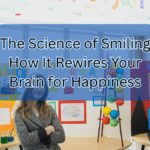Declutter for Wellness
Have you ever walked into a messy room and immediately felt overwhelmed? Or maybe you’ve noticed that when your desk is piled with papers, your focus drifts, and stress creeps in. You’re not alone—science backs up what many of us instinctively feel: clutter has a profound impact on our mental well-being.
From increasing anxiety to sabotaging productivity, a disorganized space can silently chip away at your peace of mind. But the good news? Decluttering isn’t just about tidying up—it’s a powerful act of self-care. In this post, we’ll explore why clutter affects mental health, the psychology behind it, and practical steps to reclaim your space (and sanity).

How Clutter Impacts Your Mental Health
1. Clutter Increases Stress and Anxiety
Studies have shown that a cluttered environment triggers the release of cortisol, the body’s primary stress hormone. When your surroundings are chaotic, your brain struggles to filter out unnecessary stimuli, leading to mental fatigue.
- Visual overload: Too many objects in your line of sight compete for attention, making it harder to relax.
- Decision fatigue: A pile of unsorted mail or overflowing closet forces constant micro-decisions, draining mental energy.
2. It Kills Productivity
A Princeton University study found that physical clutter limits your ability to focus. When your workspace is messy, your brain spends energy filtering out distractions instead of concentrating on tasks.
3. Clutter Fuels Procrastination
Ever avoided cleaning because the mess feels too overwhelming? That’s the clutter-procrastination cycle. The more clutter accumulates, the harder it becomes to start organizing—leading to guilt and avoidance.
4. It Affects Sleep Quality
A cluttered bedroom can disrupt sleep. Research from the National Sleep Foundation suggests that people who make their beds and keep their rooms tidy report better sleep quality.
5. Clutter Can Strain Relationships
Disorganization isn’t just a personal issue—it can create tension in shared spaces. Arguments over messiness are common in households, adding unnecessary stress to relationships.
How to Declutter for Mental Wellness
Now that we understand why clutter is harmful, let’s talk about actionable steps to reclaim your space and peace of mind.
1. Start Small to Avoid Overwhelm
Decluttering doesn’t mean overhauling your entire home in a day. Begin with a single drawer, shelf, or corner. The *”5-Minute Rule”* works wonders: commit to just five minutes of tidying—you’ll often find yourself continuing once you start.
2. Use the “Four-Box Method”
As you sort through items, categorize them into four boxes:
- Keep (essential, frequently used items)
- Donate/Sell (things in good condition but no longer needed)
- Trash (broken or unusable items)
- Relocate (items that belong elsewhere)
This method prevents indecision and speeds up the process.
3. Adopt the “One In, One Out” Rule
To prevent future clutter, for every new item you bring in, remove an old one. This keeps your belongings in check and encourages mindful consumption.
Video Credits
4. Digital Decluttering Matters Too
A cluttered phone or laptop can be just as stressful. Try:
- Unsubscribing from unnecessary emails
- Deleting unused apps
- Organizing files into folders
5. Create a “Clutter-Free Zone”
Designate at least one area (like your bedside table or workspace) that remains consistently tidy. This creates a mental refuge from chaos.
6. Mindful Consumption: Stop Clutter Before It Starts
Before buying something new, ask:
- Do I really need this?
- Where will I store it?
- Will I still want this in six months?
7. Schedule Regular Decluttering Sessions
Make tidying a habit—set a monthly “declutter hour” to reassess your space before things pile up again.
The Mental Health Benefits of a Clutter-Free Life
Decluttering isn’t just about aesthetics; it’s a form of mental detox. Benefits include:
✅ Reduced anxiety – A tidy space promotes calmness.
✅ Improved focus – Fewer distractions mean better concentration.
✅ Increased motivation – Clean spaces inspire productivity.
✅ Better sleep – A peaceful bedroom supports restful nights.
✅ Enhanced creativity – Clutter-free environments free up mental space for ideas.
Final Thoughts: Declutter for a Clearer Mind
Clutter isn’t just physical—it’s mental. Every pile of unused items represents postponed decisions and unresolved stress. By taking control of your space, you take control of your mind.
Start small, stay consistent, and remember: decluttering is a journey, not a one-time event. Your future self—calmer, more focused, and free from unnecessary stress—will thank you.
Ready to begin? Pick one area to tackle today and notice how it makes you feel. Share your progress in the comments or tag us on social media—we’d love to hear your decluttering wins!











